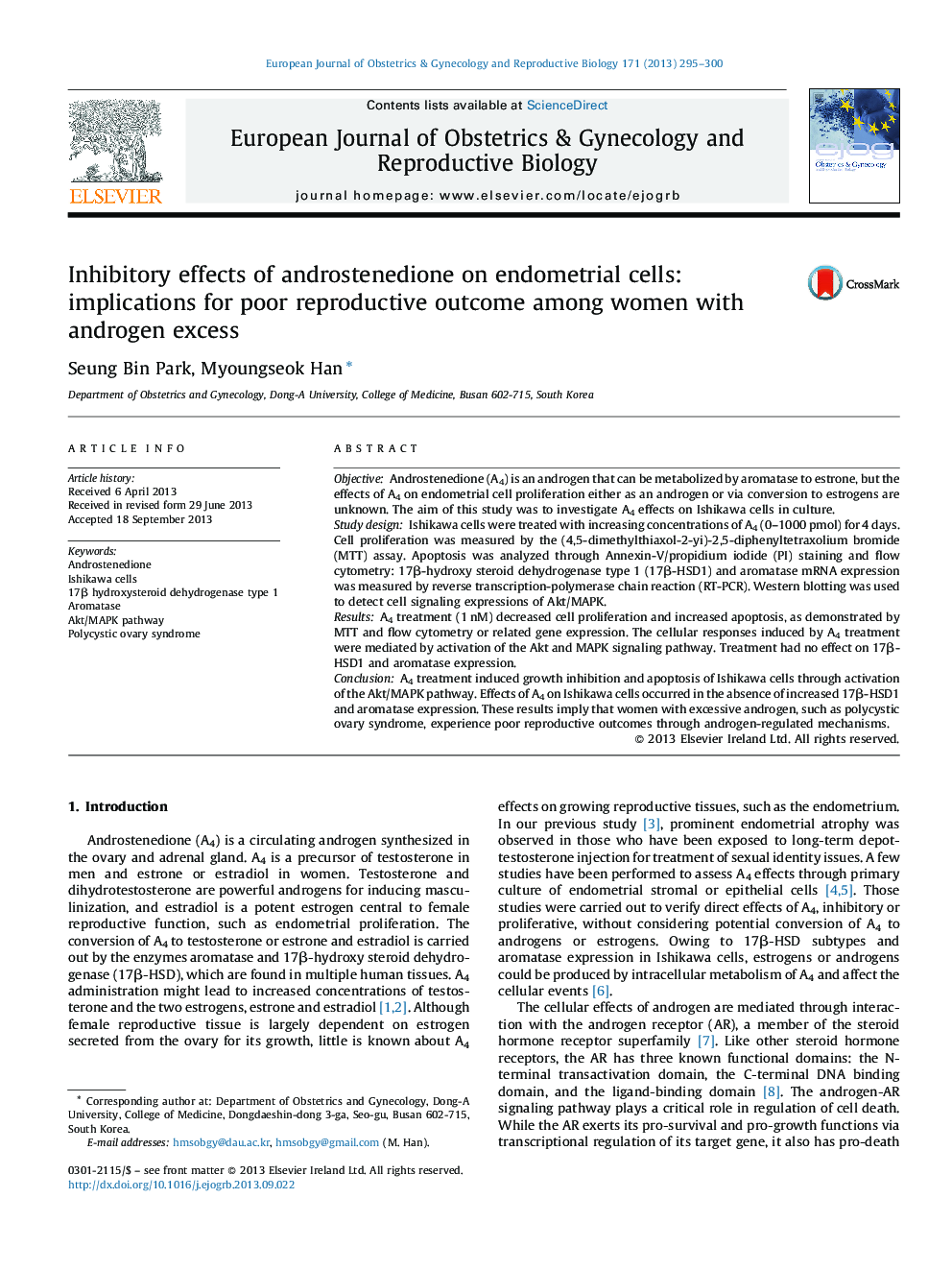| Article ID | Journal | Published Year | Pages | File Type |
|---|---|---|---|---|
| 3920175 | European Journal of Obstetrics & Gynecology and Reproductive Biology | 2013 | 6 Pages |
ObjectiveAndrostenedione (A4) is an androgen that can be metabolized by aromatase to estrone, but the effects of A4 on endometrial cell proliferation either as an androgen or via conversion to estrogens are unknown. The aim of this study was to investigate A4 effects on Ishikawa cells in culture.Study designIshikawa cells were treated with increasing concentrations of A4 (0–1000 pmol) for 4 days. Cell proliferation was measured by the (4,5-dimethylthiaxol-2-yi)-2,5-diphenyltetraxolium bromide (MTT) assay. Apoptosis was analyzed through Annexin-V/propidium iodide (PI) staining and flow cytometry: 17β-hydroxy steroid dehydrogenase type 1 (17β-HSD1) and aromatase mRNA expression was measured by reverse transcription-polymerase chain reaction (RT-PCR). Western blotting was used to detect cell signaling expressions of Akt/MAPK.ResultsA4 treatment (1 nM) decreased cell proliferation and increased apoptosis, as demonstrated by MTT and flow cytometry or related gene expression. The cellular responses induced by A4 treatment were mediated by activation of the Akt and MAPK signaling pathway. Treatment had no effect on 17β-HSD1 and aromatase expression.ConclusionA4 treatment induced growth inhibition and apoptosis of Ishikawa cells through activation of the Akt/MAPK pathway. Effects of A4 on Ishikawa cells occurred in the absence of increased 17β-HSD1 and aromatase expression. These results imply that women with excessive androgen, such as polycystic ovary syndrome, experience poor reproductive outcomes through androgen-regulated mechanisms.
